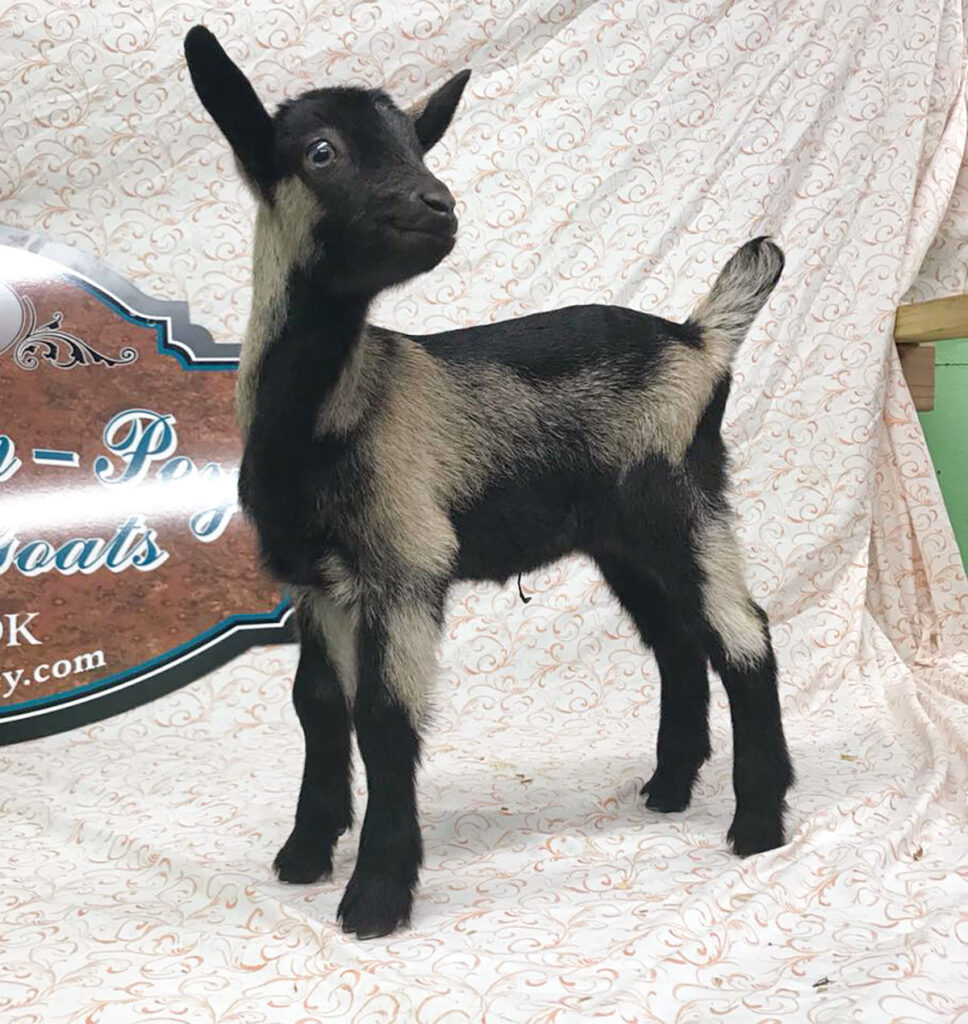
Rae-Kin-Pey Dairy Goats breeds for high-quality, high-performance animals
MIAMI, OKLA. – Aaron and Courtney Alsbaugh believe their first responsibility with Rae-Kin-Pey Dairy Goats is to create a happy and healthy environment for the animals in their care.
Aaron and Courtney Alsbaugh named the family farm, Rae-Kin-Pey Dairy Goats Farm, after their children, Reagan, Kinley and Peyton.
“We began raising and showing dairy goats in 2010 as a 4-H project and quickly learned to appreciate the joys and challenges of caring for these amazing animals,” Aaron said.
What started as a 4-H project for the Alsbaugh children is now a family hobby. The farm has three retired goats, six milking goats, five yearlings which will be bred in the fall, and four does from this spring.
“We love the animals, and we like to show them at the state fairs and American Dairy Goat Association or ADGA shows,” Aaron said. “They are not a part of our business; we lose a lot of money on them, but it is our hobby. We don’t use or sell very much of the milk.
“Our children have mostly moved into college or other interests, so the goat herd has consolidated into a few of our most productive animals,” Aaron said.
Rae-Kin-Pey hosts a collection of quality ADGA registered milking goats including the breeds of Alpine, Lamalcha and Nigerian Dwarf.
“Our primary focus is on the Alpines,” Aaron said.
For many years, the family raised Toggenburgs but recently sold the herd to a farm in Texas.
“Our goal is to raise dairy goats that are excellent representatives of their breed, being productive in the milk parlor and performing at the highest levels in the show ring,” Aaron said.
The original goats were selected from lines which represent some of the top breeding programs in the nation, he said.
The farm uses artificial insemination and the practice has been successful, he said.
“We keep a semen tank on hand and have learned to AI from other goat breeders,” Aaron said.
Dairy goats come into their breeding season in the fall and the family tries to breed for the kids arrival from February through early April, he said.

“They can be artificially manipulated into other breeding seasons, but we have been most successful on their natural heat cycles,” Aaron said.
Feeding is just as important as genetics.
“Productive dairy goats mostly need high quality alfalfa hay,” Aaron said.
The farm previously shipped in Alfalfa hay from Colorado but for the last few years the family has planted their own patch of alfalfa hay and been successful, he said.
“It is not as high quality, but the lower cost suits our purposes,” Aaron said.
The health program for dairy goats has been the biggest learning curve and obstacle to success over the years.
“Many vets are not knowledgeable about the specific issues concerning dairy goats so most of our learning has been from other breeders.” Aaron said.
Caprine Arthritis Encephalitis can be a major disease issue, it is common in Boer goats but does not cause as much concern since their use and lifespan is different.
The virus can be passed to another goat through infected colostrum, milk, or blood. It is not passed from feces, breeding, or sharing food and water.
“We want our dairy goats to live long, productive lives and CAE can both cripple their body and damage their udder,” Aaron said. “There is no cure so it’s very important to test any animals you bring into your herd and continue testing to maintain a clean herd.”
Quality free-choice mineral and additional copper along with alfalfa is the baseline of the herd’s health.
“We use some grain but only for milkers while they are on the milk stand and for growing kids,” Aaron said. “Wormers are rotated and given as needed.”
The most important thing for raising kids is coccidia parasite prevention which we do by adding a prevention to their milk, he said.







